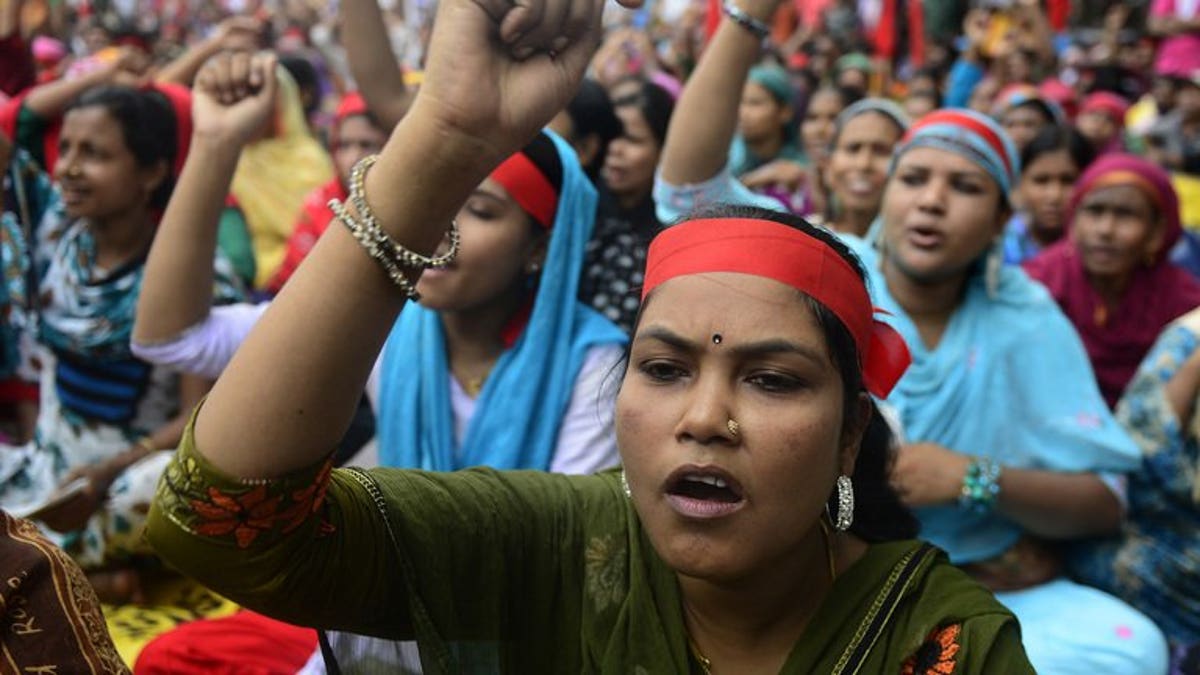
Bangladeshi garment workers shout slogans as they demand a wage increase during a rally in Dhaka, on September 13, 2013. Thousands of Bangladesh garment workers blocked roads and attacked factories outside the capital Dhaka, demanding a $100 minimum monthly wage. (AFP/File)
DHAKA (AFP) – Thousands of Bangladesh garment workers blocked roads and attacked factories outside the capital Dhaka on Saturday demanding a $100 minimum monthly wage.
The workers, many carrying sticks, walked off the job in dozens of garment factories, which make apparel for the world's top retailers such as Walmart, and protested for hours on highways in the major industrial areas of Gazipur, Mouchak and Ashulia.
"There were at least 20,000 workers who joined the protest. They blocked roads, demanding a big salary hike," Mustafizur Rahman, deputy police chief of the industrial district of Gazipur, told AFP.
Bangladesh is the world's second-largest garment exporter with apparel shipments from its 4,500 garment factories accounting for 80 percent of its $27-billion annual exports.
But the vast majority of the impoverished nation's three million workers earn a basic monthly wage of 3,000 taka ($38) -- among the lowest in the in the world -- following a tripartite deal between unions, the government and manufacturers in August 2010.
Dozens of factories were forced to shut Saturday as workers left their machines. Angry demonstrators hurled bricks and stones at the outsides of some 20 factories after they refused to allow some employees to join the protests, Rahman said.
"The situation is now calm as the workers have since marched to Dhaka to join a rally. Road transport on the highways has also resumed," he said, adding that the march in the capital was peaceful.
In June this year, the government set up a panel to review salaries and unions have demanded an 8,114 taka ($100) minumum monthly wage.
Factory owners have rejected the demand, saying they can raise wages by only 20 percent to 3,600 taka due to gloomy global economic conditions.
Saturday's protest was the first large-scale demonstration for pay hikes since the union put forward the $100 demand to the government panel late last month.
Protests over poor wages, benefits and working conditions have shaken Bangladesh's garment sector, the country's economic mainstay, since April when a factory complex collapsed, killing over 1,100 people.
The disaster highlighted appalling working conditions in Bangladesh's garment factories, where workers toil for 10-12 hours a day for low wages.
Widespread protests for wage hikes in 2006 and 2010 led to deadly clashes, leaving dozens of workers dead and hundreds of factories vandalised.
